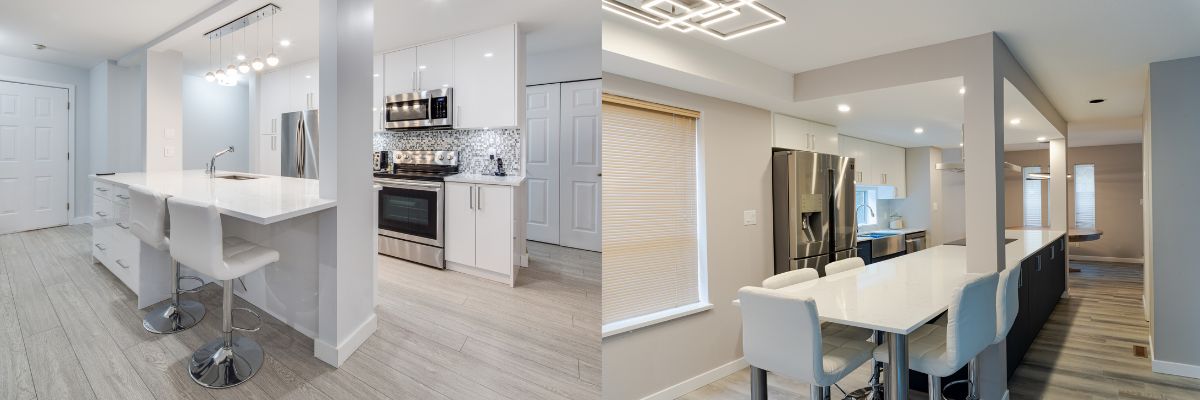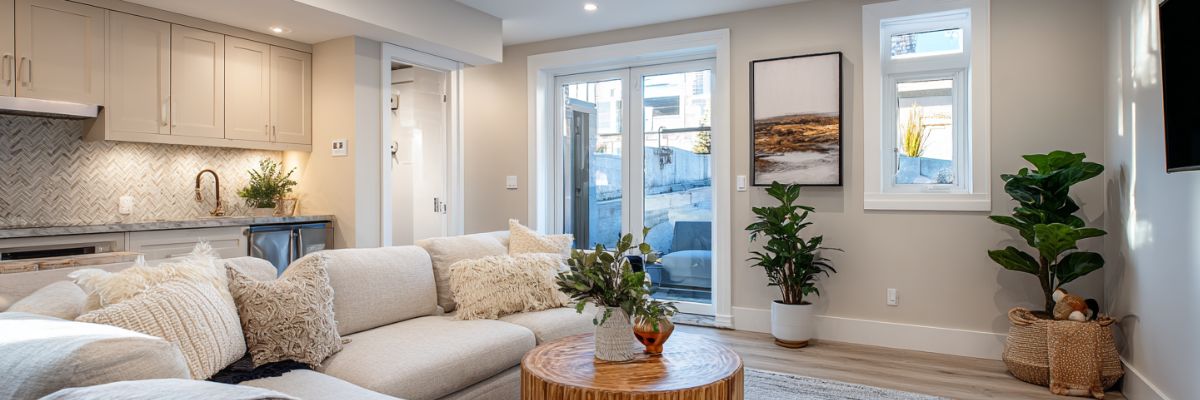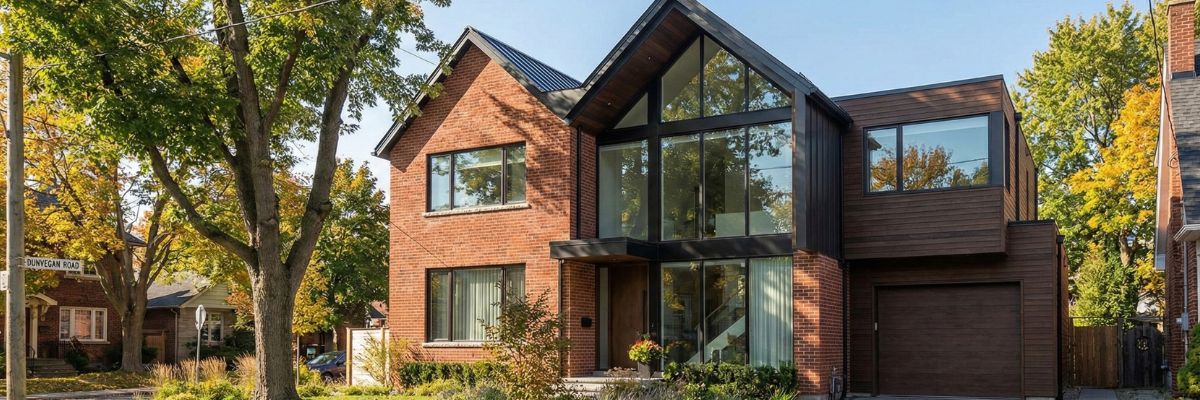Do You Need Permits For A Kitchen Renovation In Toronto?
In Toronto, you generally need a building permit for a kitchen renovation if it involves structural changes, electrical work, or plumbing modifications. If you're planning to remove walls, reroute plumbing, or install new electrical circuits, you must obtain the proper permits before starting work.
These regulations ensure that your renovation complies with the Ontario Building Code and protects the long-term safety and value of your home. On the other hand, cosmetic updates such as painting, replacing cabinets, or upgrading appliances usually do not require a permit. However, when in doubt, it’s always best to check with the City of Toronto’s building department before proceeding.
Keep reading to learn more about the permitting process for kitchen renovations in Toronto.

When Do You Need a Permit for a Kitchen Renovation?
Structural Changes
If your renovation includes any structural alterations, such as removing walls, modifying ceiling height, or changing door or window openings, you will need a building permit. This is particularly important if the work involves load-bearing walls or structural beams, which could compromise the building’s stability if handled improperly. These changes typically require stamped drawings from a licensed architect or engineer and must go through plan review by the city. Creating an open-concept kitchen is a popular renovation trend, but it almost always requires a permit due to structural implications.
Electrical Work
Electrical upgrades during a kitchen renovation are common and almost always require a separate permit. This includes relocating outlets, adding dedicated circuits for new appliances, installing under-cabinet lighting, or upgrading wiring to meet current code standards. All electrical work must comply with the Ontario Electrical Safety Code and be inspected by the Electrical Safety Authority (ESA). A licensed electrician is required for most electrical jobs, and failing to obtain a permit may not only be illegal but can also create fire hazards and void your home insurance.
Plumbing Modifications
If your renovation involves changes to the plumbing system, such as relocating a sink, installing a new dishwasher, or adding a pot filler faucet, you’ll need a plumbing permit. This is particularly important when new pipes are being installed or existing ones are being rerouted. Plumbing work must be completed by a licensed plumber and inspected to ensure it meets health and safety codes. Improper plumbing can lead to water damage, mold growth, or drainage issues, which can be expensive and dangerous if left unaddressed.
When You May Not Need a Permit
Not all kitchen renovations require permits. If you’re simply replacing old cabinets with new ones in the same layout, painting walls, installing a new backsplash, or upgrading appliances without altering electrical or plumbing systems, you likely don’t need to apply for permits. These types of cosmetic upgrades do not involve structural, electrical, or mechanical work and are considered minor improvements.
However, it’s important to note that even seemingly minor changes can trigger permit requirements if they affect other systems. For example, moving a refrigerator to a new location might require installing a new water line or outlet, which in turn would need plumbing and electrical permits.
Benefits of Obtaining a Permit
Securing permits for your kitchen renovation isn’t just a legal requirement - it provides several long-term benefits. First, it ensures your project is completed safely and up to code. Permitted work is inspected by qualified professionals at key stages of construction, which reduces the risk of mistakes or hazards being overlooked.
Second, it protects your investment. If you ever decide to sell your home, prospective buyers and their real estate agents will ask if renovations were completed with the necessary permits. Unpermitted work can delay the sale, reduce your home’s value, or even result in orders to undo the work.
Third, permitted renovations are typically covered by insurance. If damage occurs later as a result of a renovation, your insurer may deny the claim if the work was done without proper authorization.
The Permit Application Process in Toronto
In Toronto, applying for a renovation permit typically involves submitting a complete application package through the city’s e-permitting system. You’ll need to provide floor plans, elevation drawings, and a site plan, especially if your renovation involves structural or layout changes. For plumbing or HVAC permits, mechanical drawings may also be required.
Once your application is submitted, city staff will review the plans for compliance with the Ontario Building Code and local zoning bylaws. Review times can range from 10 to 30 business days depending on the complexity of the project and whether additional approvals (such as for heritage homes or minor variances) are required.
Electrical permits must be obtained separately through the ESA, which has its own online application process and inspection schedule.
Costs of Kitchen Renovation Permits
The cost of obtaining permits varies depending on the scope of work. For building permits, the City of Toronto typically charges a base application fee plus an additional fee based on the area of work being performed. Electrical and plumbing permits also come with their own fee schedules. Design fees, engineering reports, and inspection costs should also be factored into your overall renovation budget.
While the fees might seem like an added burden, they are a relatively small part of the total renovation cost and are a critical investment in the safety and legality of your project.
What Happens If You Don’t Get a Permit?
Skipping the permit process can lead to serious problems. City inspectors can issue stop-work orders if unpermitted work is discovered during construction or inspection. You may be fined or required to dismantle the renovation and start over. If the work is discovered after completion, such as during the sale of your home, it can create legal and financial headaches.
Unpermitted work can also invalidate your home insurance policy. If a kitchen fire or water damage is traced back to non-permitted electrical or plumbing work, your insurance provider may refuse to pay out the claim.
Always Check Before You Build
Toronto homeowners planning a kitchen renovation should always confirm with the city whether permits are required for their specific scope of work. The rules may vary depending on your home’s age, zoning designation, and whether it’s in a conservation district. If your project straddles the line between cosmetic and structural, it’s wise to consult a licensed contractor, designer, or building official.
Final Thoughts
In summary, yes, you do need permits for a kitchen renovation in Toronto if the project involves any structural, plumbing, or electrical work. These permits ensure your renovation complies with the Ontario Building Code and keeps your home safe and insurable. If your remodel is cosmetic, such as replacing cabinets or painting, you may not need permits. But when in doubt, it’s always best to check with city officials before beginning work.
Taking the time to understand and follow permit requirements will help you avoid costly mistakes, protect your investment, and ensure a smooth renovation process.
Planning a kitchen renovation in Toronto? Contact Toronto General Contractors today. Our experienced team handles everything from permit applications to final inspections, so you can enjoy a stress-free, code-compliant renovation that enhances your home's value and functionality.



.jpg)



.jpg)

.jpg)
